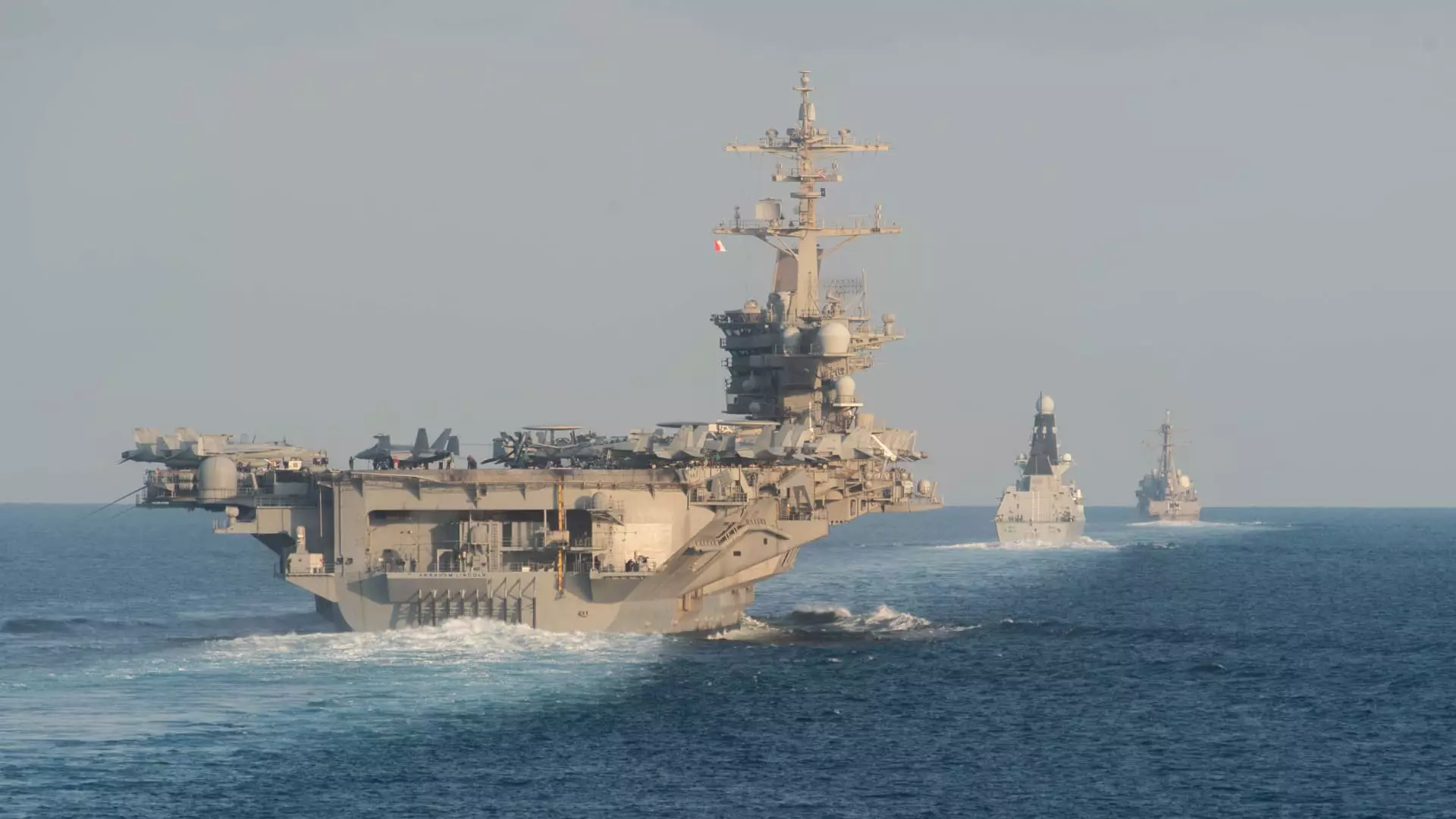The Middle East is once again thrust into the spotlight as geopolitical tensions escalate, particularly between Israel and Iran. In a notable development, the United States has decided to bolster its military presence in the region, emphasizing its unwavering support for Israel amidst a backdrop of violence and instability. The announcement from the Pentagon has raised eyebrows and sparked discussion about the future of U.S. foreign policy in this intricate and often volatile theatre.
The Pentagon’s recent announcement indicates that U.S. Defense Secretary Lloyd Austin is committed to enhancing military resources to safeguard Israel. The deployment includes a guided-missile submarine and the accelerated arrival of a carrier strike group outfitted with advanced F-35C fighter jets. These military assets symbolize a strong U.S. presence in the region, aimed at deterring potential threats, particularly from Iran. The deployment can be interpreted as a direct response to heightened tensions after the assassination of Hamas leader Ismail Haniyeh in Tehran—a serious event that has put additional pressure on Israeli-Iranian relations.
The call between Secretary Austin and Israeli Defense Minister Yoav Gallant underlines the cooperative military dynamic between the U.S. and Israel. However, this military buildup coincides with mixed sentiments within the American political landscape, as public opinion shifts and grows increasingly complex regarding U.S. involvement in international conflicts.
The Biden administration faces considerable scrutiny for its approach to Israel, particularly in light of escalating casualties in Gaza. Critics suggest that U.S. support could exacerbate the humanitarian crisis and fuel anti-American sentiments in the region. President Biden’s acknowledgment of civilian casualties as “over the top” reflects the internal struggle within the Democratic Party. As evidenced by the significant number of “uncommitted” votes in the Michigan Democratic primary, many party members are voicing their discontent over the current administration’s policies.
This intra-party divide challenges Vice President Kamala Harris’s position as the potential Democratic nominee for the upcoming presidential election. The balancing act of rallying support for Israel while addressing humanitarian concerns in Palestine becomes increasingly daunting in the face of public discontent.
Iran remains at the center of this charged environment, having vowed retaliation against Israel following Haniyeh’s assassination. While Tehran has yet to respond militarily, the uncertainty of their future actions leaves both Israel and the U.S. on edge. Analysts express concern that Iranian leadership may soon feel compelled to act, leading to a tit-for-tat escalation reminiscent of recent exchanges of missile strikes. Although current actions are measured, the potential for miscalculation looms large, threatening to ignite a broader conflict.
The geopolitical chess game extends beyond Israel and Iran, involving multiple regional actors, including Hezbollah in Lebanon. Should tensions boil over into outright war, the consequences could be catastrophic, not only for the involved nations but also for civilian populations who bear the brunt of these confrontations.
The backdrop of this military buildup and political maneuvering is a tragic humanitarian crisis. After the Hamas-led attack on Israel in October, which resulted in significant casualties, Israel’s military response has further devastated the Gaza Strip. Reports indicate over 39,000 fatalities in Gaza, with many buildings destroyed and millions displaced. Such overwhelming human loss raises urgent questions about the effectiveness and morality of military responses to terrorism and conflict.
The political killing of Haniyeh, a figure involved in cease-fire negotiations, erodes the already fragile prospects for diplomacy. The appointment of Yahya Sinwar as Hamas’s new leader signals a potential shift toward more aggressive strategies, complicating the search for peace amid an already fragmented landscape.
As the U.S. boosts its military presence in the Middle East to support Israel, multiple layers of conflict, humanitarian crisis, and political tension intertwine within this intricate geopolitical web. The evolving dynamics emphasize the necessity for careful navigation, as the actions taken by global powers not only affect regional stability but also resonate with domestic audiences. The future remains uncertain, with the potential for escalation still a looming threat, urging all players towards a cautious and deliberate approach to peace and security discussions.


Leave a Reply